I Didn't Know There Were Arguments Against The Germ Theory.
The primary cause of a disease is not germs. A disease is caused by Toxemia which results in cellular impairment and breakdown, thus paving the way for multiplication and onslaught of germs. Dr. Henry Bieler, Food is your best medicine.
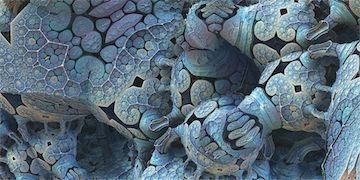
Germs are involved in the disease process but not the cause of disease. Numerous scientists have questioned that they are the cause of disease. Especially when healthy people are host to the very disease that is supposed to cause illness, and they are perfectly healthy.
All living things have a symbiotic part in the play in Natural systems. The science of Ecology states that all forms of life are integrated components of a global ecological system, This statement does not make sense when you question the role of a germ that makes us sick. Nature is about symbiotic relationships and balance. Why would a germ cause illness and imbalance and kill its host and home? What is the germs role within the host? Do germs have a role to play in our body that has nothing to do with disease? Or is a germ a preditor, a parasite that will eventually kill its host? Why would anyone want to burn down their comfy home? Are germs crazy? I don't want to piss off anyone, well maybe I do but not in a mean way. If you do get riled up over my articles I am not responsible for your emotions, you are! In fact, I had no clue there were opposing views on the germ theory, and this is why I am writing this article.
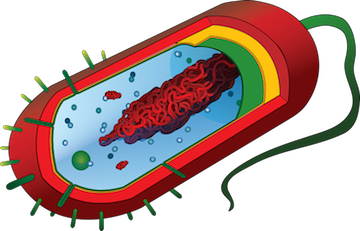
Every living organism requires specific conditions and the environment to live and thrive. The science of Biology states living organisms requires their specific requirements and a congenial environment, the right temperature, and proper nutrition. A germ, virus or bacteria is a living organism. The conditions needed for viruses and bacteria to thrive are darkness, moister, humidity, and a medium made up of rotting matter. So it fits the germs role in nature is to break down organic waste that is decomposing. This cycle is part of natures life cycle breaking down dead matter to its essential elements. Germs are like are our bodies scavengers. Without these tiny scavengers the break down of dead matter, life would be impossible, and the cycle of life would be broken. Professor Rene Dubos is an amazing person, and I am going to read more of his research, I like his views on balanced relationships between host and parasite and ecology in general.
Professor Rene Dubos has written:
Should any component of organic life remain undestroyed and be allowed to accumulate; it would soon cover the world and imprison in its inert mass the chemical elements essential to the activity of life…Microbes are responsible for the constant recycling of matter to simple molecules and back into living substances … the whole economy of nature, and therefore man’s welfare depends on the beneficial activities of microorganisms.
An example of the germ’s role within eco-systems is our garden’s compost pile. Bacteria in the soil break down rotting vegetable matter into our soil to feed the next cycle of life.
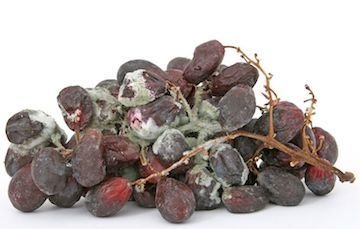
The germs role in nature also applies to the germs role within our bodies eco-system. A germ within the body’s eco-system is to break down organic wastes which are putrifying and decaying. PDF Link: R.B. Pearson in his book Pasteur, Plagiarist, Imposter, wrote:
Bacteria found in man and animals do not cause disease - they have the same function as those found in the soil, or in sewage or elsewhere in nature; they are there to rebuild dead and diseased tissue or rework body wastes, and it is well known that they will not and cannot attack healthy tissues.
George Teasdale who wrote "Nature Heals! Why Be sick?" has written:
These organisms (germs) live, multiply and thrive only in tissue encumbered with toxic matter from injudicious eating, poisons from stagnant bowels, acids from unbalanced foods, drink and drug poisons, morbid taints, and various disease products in the form of vaccines, serums, and antitoxins … germs reduce dead and dying organic matter back to its inorganic constituents suitable again as nourishment for plant life.
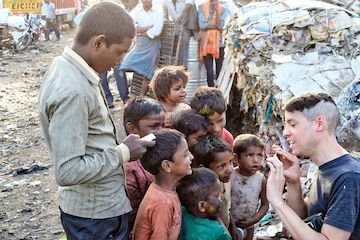
Dr. Alexander Ross, Professor of Hygiene and Sanitation, has written:
I charge that they (medical men) have encouraged superstition and hung by the germ theory of disease. I do not question the existence of infinitesimal microorganisms, but they are the result not the cause of disease. They are scavengers; their legitimate work is to clean out the sewers of our bodies. Whenever there is decay, pus or decomposing matter these little life-savers are doing their work of neutralization, sanitation, and purification. They feast upon effete decaying animal matter. They are beneficial helpers to an important end.
Eleanor McBean wrote in “The Poisoned Needle states:
When germs are found within a sick body, it is not that they entered from the outside and caused the disease. It is because they developed from the decaying cells within the body and had an important part to play in helping handle the waste and destruction brought about by serums, drugs, and other poisoned forced upon the body without.
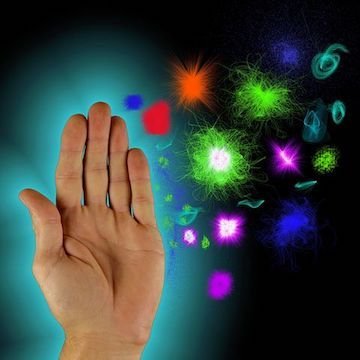
Louis Pasture first started investigating germs in 1860. His initial research worked followed the writings of Professor Antoine Béchamp, a Frenchman, and distinguished scientist. He was a Master of Chemistry and Pharmacy, professor of Physics and Toxicology, a Professor of Sociological chemistry. He spent 53 years research from 1853-1906, and he died in 1908. Beauchamp throughout his career stated germs were not the first cause of disease. Rather germs grew from organic waste. In 1883 Beauchamp said:
These microorganism feed upon the poisonous material which they find in sick organism and prepare it for excretion. These tiny organisms are derived from still tinier organisms called microzyma. These microzymas are present in the tissues and blood of all living organisms where they remain normally quiescent and harmless. When the welfare of the human body is treated by the presence of potentially harmful material, a transmutation takes place. The microzyma changes into a bacterium or visors which immediately goes to work to rid the body of this harmful material. When the bacteria or viruses have completed their task of consuming the harmful material they automatically revert to the microzyma stage.
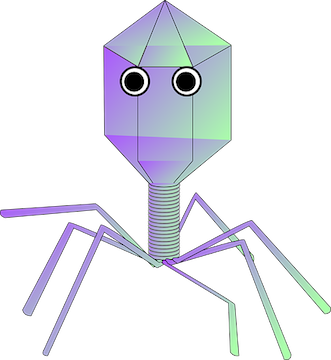
A famous contemporary of Louis Pasteur, Frenchman, and physiologist, Claude Bernard, was awarded Senator of the French Empire by Imperial decree for his work in physiology. Bernard introduced the “milieu interior” which claimed that the germ was not the cause of disease but that the terrain was the most important factor. Bernard referred to the internal condition of the body as the “milieu interior” or “terrain, the condition of the patient’s body was the main reason for the cause of disease. Bernard has written:
Illnesses, hover constantly above us, their seeds blown by the wind, but they do not set in the terrain unless the terrain is ready to receive them.
Pasteur and Bernard had many debates over their opposing concepts. Pasteur had to admit that he had been wrong. Pasteur agreed that germs were not the first cause if disease, Pasteur acknowledged that the condition of an infected person's body was the cause of disease. Rene Dubos , who wrote the Pasteur’s biography stated:
All the activities of microbes are conditioned by the environmental factors under which they function and that the severity of infectious disease is determined not only the virulence of the microbe but also by the general condition of the infected person.
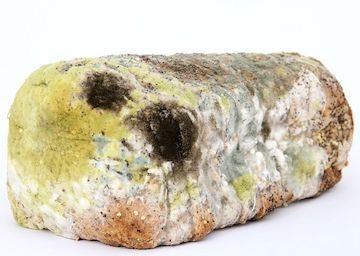
Louis Pasteur’s germ theory still rules our science models today and is the bases for our vaccine manufacturing, practices, and programs. Pasteur stated just before he died:
The seed (germ) is nothing, the soil (body) is everything.
Another Biographer quoted Pasteur's Last words: Here is what Pasteur's biographer, one with a real name, had to say:
Pasteur's strength diminished day by day, he now could hardly walk. When he was seated in the Park, his grandchildren around him suggested young rose trees climbing around the trunk of a dying oak. The paralysis was increasing, and speech was becoming more and more difficult. The eyes alone remained bright and clear; Pasteur was witnessing the ruin of what in him was perishable.
How willingly they would have given a moment of their lives to prolong his, those thousands of human beings whose existence had been saved by his methods; sick children, women in lying-in hospitals, patients operated on in surgical wards, victims of rabid dogs saved from hydrophobia, and so many others protected against the infinitesimally small! But, whilst visions of those living beings passed through the minds of his family, it seemed as if Pasteur already saw those dead ones who, like him, had preserved absolute faith in the Future Life.
The last week in September he was no longer strong enough to leave his bed, his weakness was extreme. On September 27, as he was offered a cup of milk: "I cannot," he murmured; his eyes looked around him with an unspeakable expression of resignation, love and farewell. His head fell back on the pillows and he slept; but, after this delusive rest, suddenly came the gaspings of agony. For twenty-four hours he remained motionless, his eyes closed, his body almost entirely paralyzed; one of his hands rested in that of Mme. Pasteur, the other held a crucifix.
This, surrounded by his family and disciples, in this room of almost monastic simplicity, on Saturday, September 28, 1895, at 4:40 in the afternoon, very peacefully, he passed away.

As Professor Rene Dubos has (Link To PDF) -written:Viruses and bacteria are not the sole cause of infectious disease, there is something else, is there “something else?” From the same scientist I have quoted in this article, it is Toxemia. Through the understandings of the body’s conditions, we can understand and develop methods for disease prevention. Have there been protocols developed on the above-stated theories? If not, why?
I will go into the why’s-and-why-nots in my next article. This article was written because of a question @candian-coconut asked me a year ago. I can’t remember the exact structure of the question. But I remember something about germs are not the cause of infectious diseases, and I promised I would look into that question.
- What Is In A Vial Of Vaccine? Part 2
- Lectins and Gut Health
- Save Our Pineal Gland?
- What Is In A Vial Of Vaccine?
- Eugenics, Cults, and Vaccines
- The History Of The Vaccine Court-Conclusion
- Our Sugar Addiction and The Slave Trade
- For The Greater Good
- All Female Mutants Are Here!
- Soil and Gut Health
- Where Did The First Anti Vaxxers Come From?
- History Of Vaccines Series-Ten
- History Of Vaccines Series-Nine
- History Of Vaccine Series-Eight
- History Of Vaccine Series-Seven
- History Of Vaccine Series-Six
- History Of Vaccine Series-Five
- History Of Vaccine Series-Four
- History Of Vaccine Series-Three
- History Of Vaccine Series-Two
- History Of Vaccine Series-One
I will flag comment spam at 1% strength. If you keep on spamming my post, I will flag you at 100%. I don't care if you have limited English abilities, write a couple of sentences about this article, no copy-paste, please. I will flag: one sentence comments, links to your blog and begging for up-votes and follows. Also, I will åflag comments that have nothing to do with my blog's article. I will also check your comment section to see if you have been comment spamming on other blogs.


 A link to My Blog
A link to My Blog
The Ecosystem is such a complex system but easy to illustrate but it’s deeper than what we know in high school. It goes beyond the common examples of the chain of ecosystem. The producer, the consumer and decomposers. The ecosystem goes all the way down to microbic levels .
This is a great analysis by Dr. Henry Bieler and this is completely true.
The activities of micro organisms can not be over emphasized, millions of micro organisms in the human system , some causing harmful effects , some are needed. Talking about germs, we talk about micro organisms eg bacteria, viruses... and the likes. All of these categories have their merit and demerits when it comes to diseases and infections and cures
Very Educative , thanks for sharing
I don't know if it is true but I find all this interesting and a puzzle I would love to put together with all the other bits of information floating around in my head...I see patterns related to these theories within our science today ... while I still agree with the germ theory I have questions I want to find answer for...we know that infectious diseases are prevented through hygiene and safe food, water, lodging etc...so I have lots of questions and lots of things to learn!
You know microorganisms like bacteria, virus are not the disease , they cause the disease and safe hygiene , safe food , water are just a means of preventing the microorganisms in getting into our body system. You see the common viral and bacteria diseases are caused by the virus and bacteria responsible for them which could be found in the air , water , environments, food and our surroundings. Some virus and bacteria could survive without a host for a particular period of time respectively. So if any of this independent virus and bacteria gets into any of this means, they then enter our body and attack the antibody giving rise to different disease blocked by the antibody. I hope I was able to communicate some little sense
@reddust, Actually we all faced some of germs indeed diseases. Sometimes protect from it but unfortunately couldn't save them. Some persons died via germs entered inside our boy and then mixed with blood. However I agree with Dr. Henry Bieler's suggestion. Food is a best medicine to humans. But need to keep schedule for control food level. If not can happen various kind diseases. I have no longer study of biology. So I don't know how germs active against humans. But you explained better germs theory. Then I take some imagine. That would be a greatest science indeed informative article. Thanks for giving knowledge to me.
I've always thought germs were the cause of disease but the body had to be sickly for one to catch the disease. Not everyone died from plagues while many did...many catch colds but their friends don't...some people never catch the flu even though they are surrounded by people who are sick...So I have lots of unanswered questions which will end up articles....hahaha
your article is very interesting @reddust, it helps me think back to the lessons I can get to elementary school first, "germs is the source of disease", a message that while reading your article is still clearly heard in my ears, today I got a very explanation make sense from you ,,
thank you very much, hopefully you are getting blessed
@steemitcountry, I don't know if I agree with the theories that oppose the germ theory, but I find their arguments fascinating and I want to research this topic and write more papers! Especially related to modern researchers that agree with the soil theory, terrain theory, ect...
I strongly agree with their theory, although I am layman in the field but by logic the basis of their theory is very reasonable, for me as long as I have not get a more reasonable reason from this theory I will stick to this theory, except maybe after you refute it with a more scientific and reasonable theory,
thank you your post, very useful for me personally
Diphtheria is an infectious disease caused by the infectious and dangerous bacteria Corynebacterium Diphtheriae.
Diphtheria can cause death from obstructive upper airway obstruction or its pathogenic toxins, leading to complications of myocarditis, paralysis of the cranial and peripheral nerves, arthritis, osteomyelitis, renal failure, respiratory failure, and circulatory failure. Some of the risk factors for epidemic transmission usually occur in populated populations. One house with the number of people more than five family members was already fairly solid. Several risk factors accelerate transmission and occurrence of diphtheria outbreak such as dense populations, poor health and hygiene.
Transmission can occur from an infected person or carrier (carriers that are asymptomatic) and spread it through droplets (airway fluids, eg from coughing / sneezing), snot, saliva, and sometimes also from vomit.
The incubation period is about 2-5 days, sometimes up to 10 days.
Symptoms are also not seen in the early days of transmission. Because of that diphtheria can only be seen when the mouth of the sufferer is opened, there is a dirty white membrane in the patient's throat.
Thank you for that information @moniristi
Another wonderful and interesting topic for blogging by @reddust mam...
Actualy useful details for our healthy life...thanks for sharing this uncommon post...
Wel done mam...
Diphtheria can cause death from obstructive upper airway obstruction or its pathogenic toxins, leading to complications of myocarditis, paralysis of the cranial and peripheral nerves, arthritis, osteomyelitis, renal failure, respiratory failure, and circulatory failure. Some of the risk factors for epidemic transmission usually occur in populated populations. One house with the number of people more than five family members was already fairly solid.
hai my friend @ reddust.kumanena is one cause of infectious diseases.karena usually if someone is sick there must be germs that cause a disease tersebut.biasanya germs are in place dirty and dirty that is the cause of diseases that are contagious because germs are very dangerous. children are also quite susceptible to infectious diseases because of the germ.success for you @ reddust
Wao! I just your research work! @reddust, What an eye opener so germs are even beneficial to the body? Cant actually understand this symbiotic relationship.
Lovely post, seems you are my best teacher these days, because i gain much from you than anyone on steemit presently.
Fungi and Fungal Diseases:Fungi are non-green saprophytic or parasitic plants that subsist on dead and decaying organic matter or living organisms. Certain species of fungi are parasitic on man and cause Ringworm attacking the keratinized layer of skin, destroying it in circular patches. Dandruff and Athletes’ foot are other fungal diseases that attack man.
germ is very dangerous. a very simple thing is Usually I want to ask the dirty hands and with the hand we eat something without first washing the hands germs contained in the hands can usually go into the food and we eat the food effects which is caused as light as possible is that we experience stomach pain and diarrhea that is why germs are highly contagious and very dangerous especially if we do not understand what it is germs it is from me thanks
Interesting!! That's a perspective that at first I thought was ridiculous - germs exist and of course they cause disease!
But after reading the additional explanations, it's not a silly theory after all; it actually lines up with things I've read and thought about before.
The point that many bacteria help clean out the "sewers" of the body is key; I believe that science is discovering the important role of say gut bacteria in our intestines in helping maintain our health, and even fighting other bacteria (given the vast diversity in microbe life, some of that life can simply be hostile to us, but some is also critical to us). So when people consume a ton of antibiotics... It upsets the microbial gut ecosystem, which paves the way for more hostile bacteria to come in.
This is certainly a complex and interesting topic; maybe the term "germ" is too derogatory to the little helpers inside us. I guess I still think some are bad, but many are vital to us and we need to understand the helpful ones better before we say go into space and leave them behind. :(
Dear @reddust, General – preventing the infectious germs by keeping away from exposure to the germs. Hygienic life style, avoiding overcrowding, inhaling air, safe drinking water and good sanitary measures are the ways to prevent a disease causing germ, coming into contact with us.
Germs are very dangerous and a nightmare for our health. They are always harmful but some are also useful who killed other germs but useful are very less and harmful germs often create many disease. Thank you @reddust for your valuable analytic content.
Read your post is to feed on so much information. I did not know all this germs, thank you for researching and sharing everything with us. I had no idea what germs could do. but thanks to your post I have more information. I hope you are still free of migraine today. Have a good night @reddust
Very interesting topic i think is a combination of the facts you share here. Regards
Hello @redduts , a very important topic, that you explain very well, thank you, reading your post, I see that there are many things that we still need to learn.
Good night .
It's fun to read closely. You write with great ability. Your ability about health is unquestionable. Remarkable!👍
Have a wonderful day @reddust!
Right from the beginning, we are supposed to have trust in fact that germs are primary cause diseases but they are not at first level, but on later biological levels(secondary)....thanks to you for correction of my view point..
Germs are found all over the world, in all kinds of places. The four major types of germs are: bacteria, viruses, fungi, and protozoa. They can invade plants, animals, and people, and sometimes they make us sick.
thanks for your explanation and enlightenment @ reddust, as my mother has been lost in wrong thinking for decades, and I'm sure there are still many people who think like me that germs are the source of the disease, hopefully they also read your article,
So it is Toxemia - The breakdown of cells creating their poor condition causes the disease. Germs then are the result of this breakdown and not the direct cause. I am assuming they may be considered a byproduct or secondary cause if I read this right. Mom should read this LOL She is a germa phobic and thinks you can get cancer by being around folks with cancer or get germs and illness from second hand merchandise. I am the opposite. Interesting. Thanks @reddust. PS: I do not understand toxemia. Is that like toxins????
Hi @reddust! I love your researh :D. Ty Resteemed
On his death bed, Louis Pasture confessed that he was wrong. That he did this all for the money.
So you could sell a pill "to make people better".
People and organic life are the causes, get rid of them and we will be germ free
Your article I liked a lot and taught me a warning to start taking care more in our day to day, in my opponents the germs are the cause worldwide of most diseases, according to scientists from a new laboratory in Mexico. recently that the beard accumulates more bacteria than a bath, hehehe, when you hear that, I do not have hair haha, greetings, I loved your publication
hi @reddust
This yet another amazing article...
.still confusion here as regards there take on germs not been the cause of a disease rather die to toxemia.
Germs could be bacteria ,protozoans found around us that could cause disease in man. I would have almost and totally agreed with them if they had said, the toxins released by these germs causes diseases. This is because most bacteria releases toxins in their host when they invade and this is a mechanism that ensures their survival.
To me I believe germs cause disease though not directly rather through the toxins they release, without germs obviously there won't be toxins in the body. This is excluding chemical toxins.
All the same the topic was interesting. Thanks for sharing
PLEASE be aware that germ theory as well as terrain theory and miasma theory are exactly that - theories.
Now I'm all in for challenging the paradigms that remain unquestioned, but not by introducing another theory just because we like it better.
I also encourage you to dive into Koch's postulates if you want to learn more about why germ theory is currently the predominant explanation for disease causation.
everybody should take care of their health...because health is wealth
In fact this is one of the best medical related writeup that i have ever read, it opens up my understanding about germs and diseases.
@reddust I commend your effort on research.
Great work.
Diphtheria can cause death from obstructive upper airway obstruction or its pathogenic toxins, leading to complications of myocarditis, paralysis of the cranial and peripheral nerves, arthritis, osteomyelitis, renal failure, respiratory failure, and circulatory failure. Some of the risk factors for epidemic transmission usually occur in populated populations. One house with the number of people more than five family members was already fairly solid.
Wow im saving this post
This really emphasize the importance of keeping our cells healthy with exercise and proper nourishment....as means of disease prevention
A simple thought exercise are the street children here in the philippines. You see them eat left overfood they pick from who-knows-where....but they dont get sick.
Upvoted and followed. Thank you for this post
This makes more sense now that we know that 90% of our cells are non-human and +98% of our genetic material comes from virus, bacteria, protozoa, fungi, parasites etc. Thanks for the great background and information @reddust ;) Awesome work!
Very detailed, informative post. No matter what I was taught in school, I have always thought that disease is caused by imbalance - either biochemical or mental / emotional. I'm sure the vast majority of diseases are life-style / environmental contaminent related.
Very wonderful information about living things
But germs have a negative impact, we must protect them in every way
wow,very nice life news